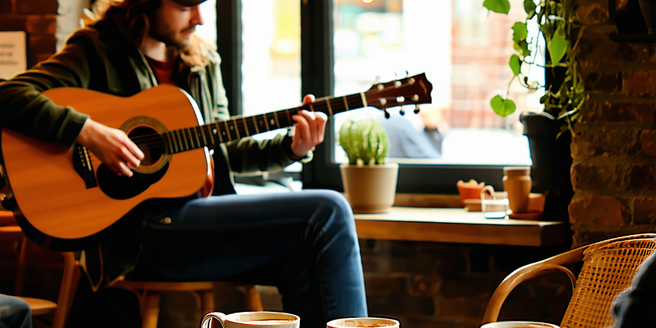Music Promotions And Free Tracks

Understanding the Value of Free Music
Offering free music might seem counterintuitive in an industry reliant on sales, yet it can significantly increase an artist’s reach. By providing music at no cost, artists can connect with potential fans who might otherwise be unwilling to spend money on unknown tracks. This approach builds a relationship based on trust and appreciation, as fans often reciprocate by purchasing other merchandise or attending live events. Free music serves as a gateway to introduce diverse audiences to an artist’s style and personality. Independent musicians and emerging artists find this strategy particularly useful as they navigate their way through a fiercely competitive landscape. Furthermore, with the availability of streaming platforms, sharing free music becomes more accessible than ever, facilitating viral opportunism and increasing the chances of broader recognition.
How to Leverage Free Tracks for Promotion
In the rapidly evolving music industry, free tracks serve as an effective promotional tool. By carefully selecting which tracks to release freely, artists can showcase their best work or offer bonus content to entice listeners. Social media platforms and online communities are ideal spaces for sharing these free tracks, maximizing exposure and cultivating an engaged listener base. Collaborations with influencers and playlist curators can amplify reach, ensuring the music resonates with a diverse audience. Hosting online listening parties or live performances also provides opportunities to promote free tracks, allowing artists to interact directly with fans. By leveraging analytics, musicians can assess which free tracks generate the most buzz, tailoring subsequent releases to match audience preferences, thereby continuously enhancing their promotional strategies.
Platforms for Sharing Free Music
Numerous platforms facilitate the sharing of free music, broadening an artist’s audience. SoundCloud serves as a popular choice, offering extensive reach and community engagement opportunities. Bandcamp provides a platform where artists can release music for free while accepting donations, thus generating potential revenue streams. Additionally, YouTube offers a visual pairing with audio content, maximizing promotional impact through music videos or lyric videos. Social media channels like Instagram and TikTok enable artists to post short clips or remixes, drawing attention from their followers. Emerging platforms provide niche opportunities for artists to connect with specific listener demographics, enhancing personalized engagement. Choosing the right platform depends on the artist’s goals, whether seeking exposure or cultivating an intimate community.
Engaging with Fans Through Free Offerings
Free offerings provide a powerful way to engage with fans, fostering loyalty and fanbase growth. By distributing free tracks or exclusive early releases, artists incentivize audience interaction, encouraging followers to share their music across social networks. Regularly offering downloadable content, such as remixes or live recordings, keeps fans intrigued and appreciative. Interacting directly with listeners via live streams or Q&A sessions further consolidates community ties, allowing artists to understand their audience better. Personalized shout-outs or thank you messages serve as meaningful tokens of appreciation, enhancing fan connection. Moreover, hosting contests or giveaways where participants receive free music amplifies audience excitement, generating word-of-mouth promotion that extends reach beyond existing followers.
Case Studies: Success Stories in Music Promotions
Examining success stories in music promotions highlights the efficacy of strategic free offerings. Chance the Rapper, for instance, achieved mainstream success by releasing his mixtapes at no cost, consequently winning a Grammy without ever signing to a major label. His approach demonstrates that free music can build a dedicated fanbase, leading to sold-out concerts and lucrative partnerships. Similarly, Billie Eilish garnered attention through free SoundCloud uploads, reaching millions before her debut album. Her strategy involved consistently engaging with fans online, transforming her audience into active promoters of her music. Such case studies underscore how disruptive free music can propel an artist into the spotlight, challenging traditional models of music distribution and promotion.
Future Trends in Music Promotion Strategies
As the music industry continues to evolve, future trends in promotion strategies center around innovation and audience engagement. Artificial Intelligence might soon tailor recommendations, offering listeners personalized free music selections, enhancing discovery. Blockchain technology promises decentralized platforms, where artists maintain control over distribution, ensuring fair compensation while still providing access to free music. Virtual and augmented reality experiences present opportunities for immersive music promotion, where fans interact with artists in virtual environments or enhanced live shows. Furthermore, the rise of NFTs (Non-Fungible Tokens) indicates potential new revenue streams through exclusive content offerings. As these trends converge, adapting promotional strategies to incorporate technological advancements will be crucial for artists seeking sustainable pathways to connect with their audiences.